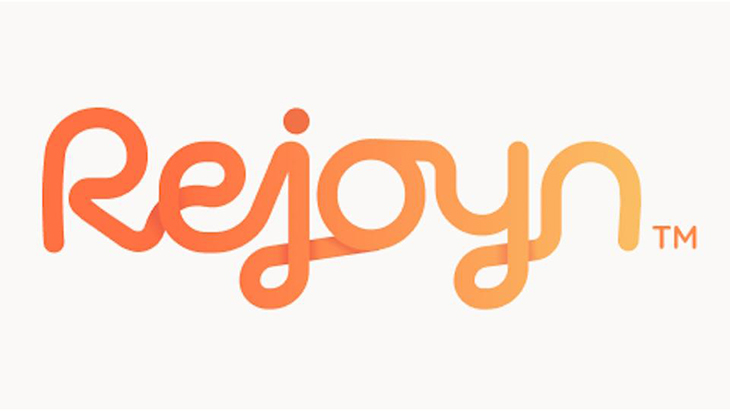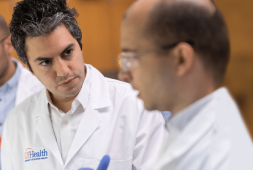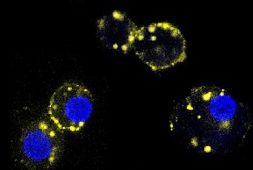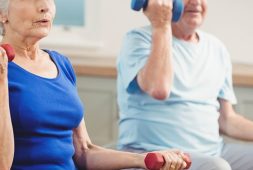
The Rejoyn therapy app has been approved as an adjunct treatment for adults with depression who are already on an antidepressant. The lessons within the Rejoyn app take less than two hours per week to complete.
Key Points to Note
- Rejoyn is a smartphone app designed to provide a six-week therapy course for individuals with depression who are already on antidepressants.
- The app integrates emotional training exercises, therapy lessons, and text messaging.
- It will be available exclusively by prescription.
The U.S. Food and Drug Administration (FDA) has approved the first prescription therapy app, Rejoyn, as an adjunct treatment for reducing symptoms of major depressive disorder in individuals aged 22 and older who are already on antidepressant medication.
Developed by Otsuka America and Click Therapeutics, Rejoyn offers a six-week program aimed at improving mood regulation. The app features emotional training exercises for the brain, brief therapeutic lessons, and supportive text messaging to reinforce lesson content and promote consistent app usage, according to a press release issued on Monday by the developers.
“Only a third of patients who are diagnosed with depression and receive antidepressants as their first-line treatment are successful,” David Benshoof Klein, a cofounder and the chief executive officer at Click Therapeutics, said in a statement. “These patients need new options that capitalize on proven-effective treatment strategies. [This app] provides hope for those who are looking for new treatment options, especially one that is easily accessible through the device in the palm of your hand.”
The FDA granted clearance for Rejoyn based on a 13-week controlled trial involving approximately 400 adults aged 22 to 64 diagnosed with major depressive disorder and already on antidepressant medication. Participants in the trial were randomly assigned to either the Rejoyn app or a sham control app.
Results from the trial showed that participants using Rejoyn experienced significant improvement in their depression symptoms, as measured by several standard patient questionnaires. Notably, these improvements persisted one month after completing the six-week treatment program. Additionally, no side effects were reported during the study.
Rejoyn’s treatment program involves three brief therapeutic lessons per week, each lasting about five minutes, and three clinically validated cognitive emotional training exercises per week, each taking between 20 to 30 minutes. This totals to a commitment of less than two hours per week. Each new course of treatment with Rejoyn requires a new prescription.
How a Smartphone App Helps for People Who Suffer from Depression
Clinical research indicates that while chemical imbalances play a role in depression, they are not its sole cause, despite being the target of many conventional treatments.
In certain individuals with depression, there’s a breakdown in communication between brain regions responsible for emotion recognition, processing, and cognition. This communication deficit can hinder emotional regulation, exacerbating symptoms of depression.
Some individuals with depression exhibit heightened activity in neural systems linked to emotion processing, like the amygdala, alongside diminished activity in systems crucial for cognitive control and emotion regulation, such as the prefrontal cortex.
The Rejoyn app employs a technology known as the Emotional Faces Memory Task (EFMT). This task prompts users to identify emotions while viewing a series of faces and recall the number of faces displaying the same emotion encountered earlier in the sequence. The goal is to synchronize brain activity across regions, fostering collaboration between them. This approach aims to address the underlying neural dysregulation contributing to depression symptoms.
“The aim is to target the thinking abnormality we see in patients with major depressive disorder — that of perseverating [repetitive thinking and behavior], ruminating, obsessing, dwelling on the negative — by activating these two nodes, emotion processing and cognitive control, simultaneously,” Brian Iacoviello, PhD, an assistant professor in the department of psychiatry at the Icahn School of Medicine at Mount Sinai in New York City, a scientific adviser at Click Therapeutics, and a co-inventor of EFMT, also said in a statement. “Thus, higher cognitive control regions will stay active even while the brain is processing salient emotional stimuli, giving the individual the capacity to shift their mindfulness and attention so that they are not perseverating.”
Depression App Shows Promise, but Questions are Still There
John Torous, MD, the director of the division of digital psychiatry at Beth Israel Deaconess Medical Center in Boston, finds the new app to be an “exciting” addition to depression therapy options.
“We have effective depression treatments already, but not everyone responds,” Dr. Torous said. He was not part of the development of Rejoyn. “So having another tool that people can try is useful.”
He stresses that the app is designed to complement rather than replace existing treatments and should be used alongside ongoing care with physician supervision.
Unlike many other wellness apps aimed at mental health, which are accessible to consumers without FDA approval and do not require prescriptions, this app is classified as a low- to medium-risk “medical device.”
Torous and his colleagues oversee MINDapps.org, a website that catalogs numerous mental health apps, including those tailored for depression. Unlike the FDA-approved app discussed, these apps on MINDapps.org are not FDA-approved, do not need prescriptions, and often come at no cost to users.
Some apps have shown extremely impressive proof that support their effectiveness, while others aren’t as good, according to Torous. He also serves on an American Psychiatric Association panel that looks into these apps and evaluates them. “You can use our website to see how many apps exist today for depression,” he said.
John Kraus, MD, PhD, executive vice president and chief medical officer at Otsuka, emphasizes that despite being delivered via an interactive smartphone app, Rejoyn is classified as a medical device and treatment, rather than a wellness app.
“This is a prescription therapeutic intended to treat or alleviate a disease, disorder, condition, or injury, by generating and delivering a medical intervention that has a demonstrable positive therapeutic impact on a patient’s health, which is only available to patients by prescription from a healthcare provider,” Dr. Kraus said.
John Kraus, MD, PhD, executive vice president and chief medical officer at Otsuka, underscores that Rejoyn underwent rigorous FDA clearance using clinical scales akin to those in drug trials. However, the translation of app results to real-world outcomes remains uncertain. As noted by Torous, questions linger regarding user engagement and clinician acceptance for prescribing and integrating the app into treatment protocols.
Regarding cost, Otsuka has not disclosed pricing but assures that Rejoyn will be affordable and accessible. The availability of insurance coverage for the app remains unclear at this time.
Rejoyn is slated for release on iOS and Android app stores this summer. Patients interested in the program will need to obtain a prescription from a clinician, which will then be fulfilled by a pharmacist who provides an access code for app usage.



